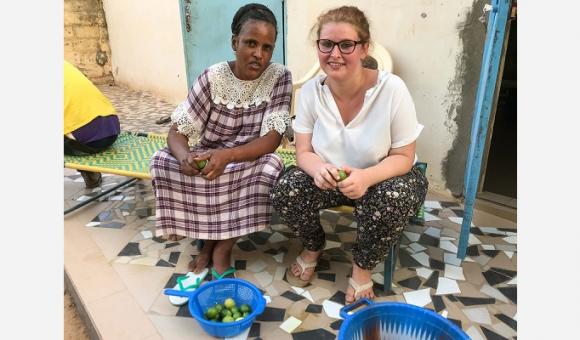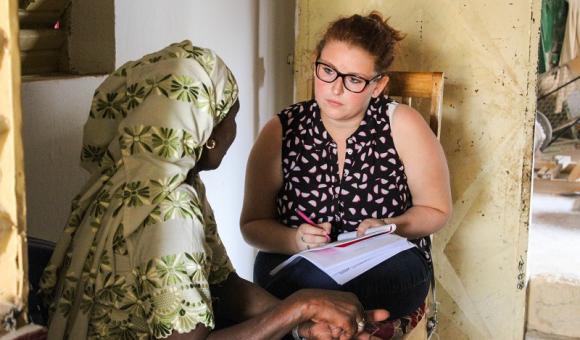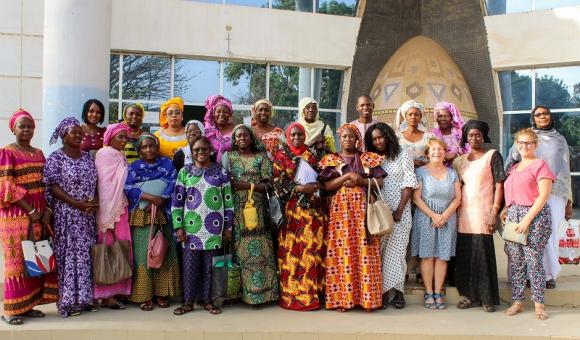
Adèle Mary, a Belgian 2nd year Master's student, joined “Jigeen Ñi Tamit”, the programme supporting women's entrepreneurship developed in Senegal, for a 3-month internship. She talks about her journey within the programme team.
Hello Adèle. What studies did you take?
I did a Master’s in social transition and innovation at Mons University, after finishing my Bachelor's degree in human and social science, sociology and anthropology option. It's a Master's about development and more specifically sustainable development and societal change. I chose options focusing on the social aspect, and more specifically issues of gender and precarity.
Why did you decide to do an internship at APEFE?
Since the beginning of my Master's, I had always wanted to do my internship in Africa to discover another culture. I enquired about different Belgian associations with development programmes on the African continent. APEFE drew my attention with its two programmes supporting women's entrepreneurship in Morocco and Senegal. The APEFE programme in Senegal, Jigeen Ñi Tamit, really interested me because it dealt with a topic that fascinates me: women's independence.
The subject of my thesis was inspired by my internship here on women's entrepreneurship: observing the effects of women's entrepreneurship on the family and the community in Senegal. My internship enabled me do all the fields surveys necessary for my thesis.
What did you observe when carrying out your field surveys?
I spoke to women who were programme beneficiaries, therefore active in the agri-food transformation in the milk and fruit and vegetable industries. I asked them questions about their lives, their income-generating activities, their sources of income, their family situation, the financial needs of the household as well as their aspirations for the future.
Have you had any conclusive results yet?
Yes, I have presented my initial results to the programme team. These initial analyses showed that the results are different depending on the industry, and that fruit and vegetables are less lucrative than milk. Sharing knowledge as well as financial solidarity are very important for entrepreneurs, who are mainly part of a network. Income from their transformation activity (and potentially their additional activities) is mainly used for children's education and healthcare needs. Once these needs are covered, the rest is either invested to contribute to household expenses or for personal purchases.
What skills were you able to apply during your internship?
This internship enabled me to develop my ability to adapt, listen and communicate with the women, as well as my teamworking skills. I was also able to develop my skills in gathering and analysing data from the field and communicating the results. During these 3 months I met with experts in the different gender-related fields, which enabled me to learn more about gender issues, the solidarity economy and entrepreneurship.
What have you learned from your internship?
This internship taught me more about the position of Senegalese women and the country's culture. My work within Jigeen Ñi Tamit broadened my mind and gave me fulfilment. This immersion enabled me to understand the operation and challenges of a programme supporting women's entrepreneurship in a developing country. I am very pleased to have done this internship because it enabled me to carry out this survey which means a lot to me and to discover the magnificent country of Senegal. Jerejef (thank you in Wolof) to all!
Visit the Apefe site for other news on Wallonia-Brussels development cooperation!

